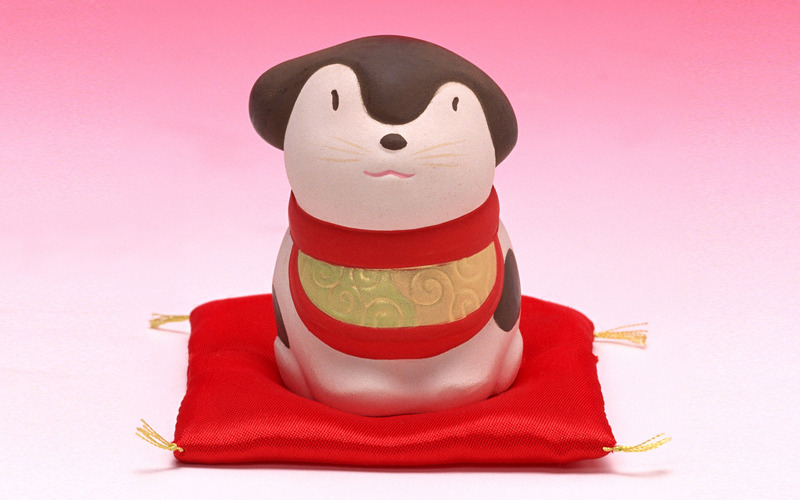
我在大学的第一年英文作文【一】
Many people simply regard Pride and Prejudice as a love story, but in my opinion, this book is an illustration of the society at that time. She perfectly reflected the relation between money and marriage at her time and gave the people in her works vivid characters. The characters have their own personalities. Mrs. Bennet is a woman who makes great efforts to marry off her daughters. Mr. Bingley is a friendly young man, but his friend, Mr. Darcy, is a very proud man who seems to always feel superior. Even the five daughters in Bennet family are very different. Jane is simple, innocent and never speaks evil of others. Elizabeth is a clever girl who always has her own opinion. Mary likes reading classic books. (Actually she is a pedant. Kitty doesn’t have her own opinion but likes to follow her sister, Lydia. Lydia is a girl who follows exotic things, handsome man, and is somehow a little profligate. When I read the book, I can always find the same personalities in the society now. That is why I think this book is indeed the representative of the society in Britain in the 18th century.
The family of gentleman in the countryside is Jane Austen’s favourite topic. But this little topic can reflect big problems. It concludes the stratum situation and economic relationships in Britain in her century. You can find these from the very beginning of this book.
The first sentence in this book is impressive. It reads: “It is a truth well known to all the world that an unmarried man in poss ession of a large fortune must be in need of a wife”. The undertone is very clear: the foundation of the marriage at that time is not emotion but possession.
People always think that Austen was an expert at telling love stories. In fact, the marriage in her book is not the result of love, but the result of economic needs. After reading this book, I know the truth is that a poor woman must be in need of a husband, a wealthy man.
I couldn’t forget how eager Mrs. Bennet wants to marry off her daughte rs. If you want to know why she is so crazy about these things, I must mention the situation in Britain at that time. Only the eldest son had the privilege of inheriting his father’s possessions. Younger sons and daughters who are used to luxurious lives have no choice but marry a man or woman in possession of a large fortune to continue their comfortable lives. Thus, we can see that getting married is a way to become wealthier, particularly for women without many possessions. Jane Austen told us that money and possession determined everything, including marriage and love in her century.
In “Pride and Prejudice”, the sister of Mr. Bingley strongly opposed his plan of marrying Jane because the Bennets don’t have many possessions and their social positions are much lower than them. From this, we can see there are a lot of obstacles for a not very rich woman to marry a wealthy husband. The society, the relatives would not allow them to get married.
In modern society, although the marriages of economic needs have decreased rapidly, the concept of “money determines everything” is still rooted in some people’s mind. A lot of parents try hard to interfere their children’s marriages. Education background, possessions, jobs remains the main reason that may influence one’s marriage. Marry for money is still a big problem in our
society. We can’t help thinking: can money determine everything?
Austen left this problem for us to think. The genius of Jane Austen lies in this perfect simplicity, the simplicity that reflects big problems. Although Austen was only 21 when she wrote “Pride and Prejudice”, her sharp observation of social lives makes the style of this book surprisingly mature and lively. The plots in her works are always very natural. The development of the plot is as inevitable as a problem in mathematics. I think the depth of Pride and Prejudice is the reason that makes this book prominent and classic. Today, her book still can be the guide telling us the economic relationships both at her time and in modern time.
我在大学的第一年英文作文【二】
I read the Chinese version of “Camille” a few years ago. At that time I was deeply moved by the main character Marguerite Gautier. “Camille” or “The Lady of the Camellias” by Alexandre Dumas, fils, is the story of Marguerite Gautier, a young courtesan, or kept woman, in Paris in the mid 1800's, and how she falls in love with a young man, Armand Duval, and then tries to escape from her questionable past. Unfortunately, it comes back to haunt her and she ends up returning to that life and dies painfully and alone, but with the knowledge that she was a noble woman at heart. When I first began to read the book, I did not care for Marguerite or her attitude or lifestyle, but as I got further into the narrative, I realized that her saucy attitude was a front to cover the lonely woman that she really was. She felt used, abused and unloved, until the gentle Armand Duval came into her life and showed her that he loved her as a person and not for what she could do for him. It must have taken great courage for Marguerite to leave the life she had lived for so long, knowing all along that it was probably too good to be true and would not last indefinitely. And it also showed that Marguerite really loved Armand Duval for she could even change herself for him.
However, happiness didn’t last for long. When M. Duval, Armand's father, came to her, pleading for her to leave Armand to save both Armand's reputation and that of his younger innocent sister, Marguerite saw a way to become pure of heart, if not in body. She felt that it was her duty, because she loved Armand so much, to do this even though it meant giving up her own happiness and hurting Armand temporarily. She reluctantly returned to her former life, knowing that.some day Armand would forgive her. Sadly, she died in debt and basically alone, except for her one female friend, Julie Duprat, who helped her during her illness. She had her journal sent to Armand after her death, explaining why she had made the choices she had. I think Dumas's last few lines about Marguerite being the exception, not the rule were quite true, and I also agreed with his view that while her lifestyle could not be condoned, we as a society assume that all of these type of women are cold and heartless, while this may not always be the case. A person can make the wrong choices in life when they are young, and try to redeem themselves, but sometimes past situations prevent them from changing their lives, even though they desperately wish to do so. This applies to both men and women in many different types of circumstances: involvement in crime; drug or alcohol abuse; gambling; prostitution; financial problems; poor marriage choices; etc. And this is the fact, which exists in the whole society.
As far as the other characters in the book, I think Marguerite was right in saying that no one truly cared about her, but only wanted something from her, the only exceptions being Armand and Julie Duprat. Of course, the Comte de G. and Comte de N. wanted her body and appearance. The
Duke needed to “wake up and smell the coffee” and realize that she could never replace his dead daughter. If he truly cared, he could have helped her leave her lifestyle without “keeping” her himself. And lastly, Prudence was a blood-sucking leech who used Marguerite almost worse than the men. I also think she was jealous of the fact that Marguerite had so much more courage than herself and someone truly loved her.
Last morning, when tiding my bookshelf, I took this book out of the shelf, and a dried flower flew away from the book. It was pale blue, very transparent, with thin fine veins. a dried flower flew away from the book. It was pale blue, very transparent, with thin fine veins. I held it against the morning light and blew on it. The soft breeze carried it away. Camille is just like the camellia, she could never escape from the destiny of withering. But it wasn’t her fault; it’s because of the evil of Capitalism and the hideousness of that society.
Suddenly, I remembered a saying: “Women are like the flowers”. Those pretty women are like those beautiful flowers; their delicate beauty makes people feel they are the miracle of life. However, even the God envies their beauty. It seems that beautiful women always have tragic endings. As we are normal persons, even we can see the hideousness of humanity that results in their fate of withering, we can at most ask quietly in our hearts: Where have those beautiful flowers gone? Where have they gone?
The Life And Adventures Of Robinson Crusoe
It seemed to be such a coincidence that the night after I finished reading The Life And Adventures Of Robinson Crusoe, I was to dine in a restaurant distinctly related to the book itself. This restaurant was no other than the famous American-styled “Friday ’s. ” The reason for mentioning this restaurant is quite straightforward to all the gentlemen, ladies and children who have read the novel and enjoyed it, which is the fact that this restaurant was, most likely, named after the American Native in Robinson Crusoe, called Friday. This restaurant offers very exceptional service, for instance when the waitresses are asked to order dishes they kneel rather than stand, which, unlike the other restaurants I have been to, makes it easier for the customers to hear them speak. Moreover, Friday’s friendly services to the customers help them to make better choices when ordering dishes. I remembered when I went to Friday ’s last time; the waitress kindly described the items on the menu with precise details. It turned out that the combo I initially wanted was designed to be shared among a large group, not to be eaten by one person. I think this restaurant shows many commendable features similar to that of Friday. Friday brought emotional warmth to the people around him with his appealing personality. I think it was this personality that affected Crusoe and made him say that he loved Friday when Crusoe didn ’t express love for his parents, brothers, sisters, or even his wife. “When he espied me, he came running to me, laying himself down again upon the ground, with all the possible signs of an humble, thankful disposition, making many antic gestures to show it to let me know how he would serve me as long as he lived.” This was what Friday did after Crusoe had rescued him from the two savages chasing him. It was easy for me to see why Crusoe had loved Friday. After sometime, Crusoe and Friday were to rescue Friday’s father. When Friday reunited with his father, the scene was easy to move anyone: “It would have moved anyone to tears to have seen how Friday kissed him, embraced him, hugged him, cried, laughed, halloed, jumped about, danced,
sung; and then sung and jumped about again, like a distracted creature. It was a good while before I could make him speak to me.” This is my favourite chapter in the whole book. It is hard to see why Friday is an ex-savage when he can have personalities more praiseworthy than many civilized people, viz. Crusoe himself. “When he (Friday went to him (Friday’s father, he would sit down by him, open his breast, and hold his father’s head close to his bosom, half an hour together, to nourish it; then he took his arms and ankles, which were numbed and stiff with the binding, and rubbed them with his hands.” Furthermore, Friday’s expression of loyalty in asking Crusoe to kill him rather than leave him is more heartfelt than anything Crusoe ever says or does.
Crusoe, on the absolute contrary, seems incapable of deep feelings, as shown by his account of leaving his family—he never shows any emotions. After a moving lecture from Robinson’s father about his future, he still decided to follow his own wandering ambition. Careless was he about the wishes of his parents to keep him alive and prosperous, as he was the only child left in the family. When he came back from the island which he had lived on for twenty eight years, he found that it had been too late to tell his parents that he was still alive, but yet again he did not feel sorry for them; he also did not feel sorry for the two people who had to live in misery for nearly thirty years under the allusion all of their sons were dead. He had the same feelings for his wife: when he was married, he said it was “not either to my disadvantage or dissatisfaction”, implying that it was also neither to his advantage nor his satisfaction. Moreover, after his wife died, Robinson did not think of looking after the three children they had, but went back to the island, which he had lived on for twenty-eight years. It was on this trip which Robinson Crusoe revisited “His Island ” as he called it. I feel that Robinson ’s indifference to his family is almost emotionally cruel.
Before had clearly shown the contrast between Crusoe’s and Friday’s personalities, as when Friday, in his joyful reunion with his father, displayed far more emotion toward his family members than Crusoe, whereas Crusoe never mentions missing his family or dreams about the happiness of seeing them again. I think Defore is very successful in introducing Friday as part of the novel, it makes the whole novel seem much more complete and gripping to the reader, as well as proving that Defoe’s ideology of racism is civilized unlike many other Europeans at that time; natives and savages are not worse than others but can perhaps even be more modern and civilized. Those are the reasons of why I like The Life And Adventures Of Robinson Crusoe and Friday.
我在大学的第一年英文作文【三】
孩子:
最近,说不清的原因,对你有很强的期盼感。想要拥有一个你,一个小小小小的你。
想象中的你,这个属于我的你,小小的,没有清晰的样子,只是一个远远模糊的身影,步履蹒跚,向我摇摇摆摆地走来,张着小手,向我挥动。走在路上,看到***的母亲,我会不由地开始想象你在我肚子里的样子,想象你会不会也调皮地踢踢我的肚子。看到人家的小孩,我会不自觉地想到你,想象你是不是和那小孩一样,那么可爱,那么纯真地信任依赖自己的母亲。只是,我不敢想象你叫我“妈妈”,因为,一有这个念头,心里就会猛地地一阵酸酸地疼,眼泪就会不受控制地涌出来。
孩子,我想要你!
刚结婚时,我没有这么想你,那个时候,因为不放心家庭的经济基础,不放心家庭的感情基础,我不敢要你来。我不愿因为我和你爸爸做得不够好,让你来了以后受伤害。我希望能做多一些准备,我希望能多给你一些好的,不需要你担心,不会委曲到你。我希望在我能够放心的时候,和你的爸爸一起,用满满地爱迎接你来。在我心里,我一直知道我在等你,我要为你做努力,而你,也肯定会来。
过了这么久,我的小孩,我看到你还在向我招手,你的样子越来越多地出现在我心里。
只是现在,我还是不能要你,因为我和你爸爸的努力做得不够好,甚至我都能预感到分开的结局,我怎么能够要你?我怎么放心要你?
孩子,我对不起你,因为我甚至不知道还要让你再等到什么时候才可以来。
孩子,你一定走得累了,你等得心急了。你会不会以为我不想要你,我不爱你?你会不会因此而伤心?
孩子,如果可以,我愿意你现在就来,我愿意带你到另一个地方生活,我愿意用我的余生来陪你长大。可是,你会同意吗?
我的孩子啊,我会一直在这里等着你,盼着你,请你不要伤心,不要放弃,我会继续努力,为我们早日相聚的那一天。
妈妈
20XX年XX月XX日
我在大学的第一年英文作文【四】
现在的我已算是半成年了,童年的往事许多已忘怀,但却有一个难忘的经历永远地刻在了我的记忆中。小时候的我,懂事的很晚。学知识也非常的慢。尤其是还有一个极大的缺点——软弱怕事
还记得那时在六岁的时候。那时的我,胆小怕事,总是受邻里小孩的欺负。妈妈总叹道:“你怎么这样胆小?”我总低头不语,默默地留下像断了线的珠子一样的眼泪。小小的我虽不懂什么叫软弱,但我也有些许明白,受到别的小孩欺负大概就是软弱。
直到那件事的发生,彻底改变了我的性格......
那是一个温暖的下午时光,阳光普照大地,空气清新、美好。我手里拿着妈妈给我买的娃哈哈(那是小时候我最爱喝的饮料,静静地站在家门口等着妈妈出来。这时,一个平常总欺负我的女孩来到了我的面前,她一眼便瞥见了我手里的哇哈哈。似乎是感觉到她的注意。我像捧着数亿宝藏般地紧紧地将娃哈哈搂住。她开始对我连哄带骗,试图将我的娃哈哈抢走。但这却对我没有起到丝毫的作用。她大怒,将愤怒的手指在我的脸上直线掠过,一阵火辣的疼痛感充斥着我的脸庞。她竟挠破了我的脸!并且以迅雷不及掩耳之势的速度抢走了我心爱的娃哈哈。消失在这无尽温暖的阳光里。但此时,这温暖的阳光却显得多么的嘲讽!就在此时,妈妈出来了,她一眼便看见离我眼睛不到一厘米的地方似乎想与瀑布赛跑般地速度流淌着我的血液,一切似乎都静得出奇,只有“啪嗒、啪嗒...”滴血的声音。妈妈发疯般地抱起我飞快的跑到了医院。眼睛似乎在那一刻就差一点变的失去功能了吧!听到医生那句“幸好没有伤及到眼睛”的话语。妈妈的心终于放了下来。但我的脸上却残留下了那一块心目的疤痕。小小的我心里一阵波涛汹涌似的起伏。那时的我也似乎有了些许爱美的心理。每看见脸上那块醒目的疤痕,心里就无比的悔恨。这件事过后,邻里的小孩子们似乎也对我收敛了很多,我慢慢学会如何勇敢,不做软弱的人。也在心里暗暗发誓“我要为自己负责”。因此,我便不再受欺负。
现在的我,已十四岁。脸上的伤疤已经淡去,似乎可以用我大大的眼镜遮盖住,但不管怎样将它掩盖,都不可能掩盖住留在我心底的那一块伤疤。
这,就是我人生的第一本书。让我永生难忘的第一本书。
我在大学的第一年英文作文【五】
This is a story about a special and unreserved woman who has been exposed to a hostile environment but continuously and fearlessly struggling for her ideal life. The story can be interpreted as a symbol of the independent spirit.
It seems to me that many readers’ English reading experience starts with Jane Eyer. I am of no exception. As we refer to the movie “Jane Eyer”, it is not surprising to find some differences because of its being filmized and retold in a new way, but the spirit of the novel remains----to be an independent person, both physically and mentally.
Jane Eyer was a born resister, whose parents went off when she was very young, and her aunt,the only relative she had,treated her as badly as a ragtag. Since Jane’s education in Lowwood Orphanage began, she didn’t get what she had been expecting——simply being regarded as a common person, just the same as any other girl around. The suffers from being humiliated and devastated teach Jane to be persevering and prize dignity over anything else.As a reward of revolting the ruthless oppression, Jane got a chance to be a tutor in Thornfield Garden. There she made the acquaintance of lovely Adele and that garden’s owner, Rochester, a man with warm heart despite a cold face outside. Jane expected to change the life from then on, but fate had decided otherwise: After Jane and Rochester fell in love with each other and got down to get marry, she unfortunately came to know in fact Rochester had got a legal wife, who seemed to be the shadow following Rochester and led to his moodiness all the time ----Rochester was also a despairing person in need of salvation. Jane did want to give him a hand, however, she made up her mind to leave, because she didn’t want to betray her own principles, because she was Jane Eyer. The film has finally got a symbolist end: Jane inherited a large number of legacies and finally returned. After finding Rochester ’s misfortune brought by his original mad wife, Jane chose to stay with him forever.
I don’t know what others feel, but frankly speaking, I would rather regard the section that Jane began her teaching job in Thornfield as the film’s end----especially when I heard Jane’s words “Never in my life have I been awaken so happily. ” For one thing, this ideal and brand-new beginning of life was what Jane had been imagining for long as a suffering person; for another, this should be what the audiences with my views hoped her to get. But the professional judgment of producing films reminded me to wait for a totally different result: There must be something wrong coming with the excellence----perhaps not only should another section be added to enrich the story, but also we may see from the next transition of Jane’s life that “Life is like a box of chocolates, you never know what you would get.”
What ’s more, this film didn’t end when Jane left Thornfield. For Jane Eyer herself, there should always be somewhere to realize her great ideal of being independent considering her fortitude, but for Rochester, how he can get salvation? The film gives the answer tentatively: Jane eventually got back to Rochester. In fact, when Jane met Rochester for the first time, she scared his horse and made his heel strained, to a certain extent, which meant Rochester would get retrieval because of Jane. We can consider Rochester’s experiences as that of religion meaning. The fire by his frantic wife was the punishment for the cynicism early in his life. After it, Rochester got the mercy of the God and the love of the woman whom he loved. Here we can say: human nature and divinity get united perfectly in order to let such a story accord with the requirements of both two sides. The value of this film may be due to its efforts to explore a new way for the development of humanism under the faith of religion.











